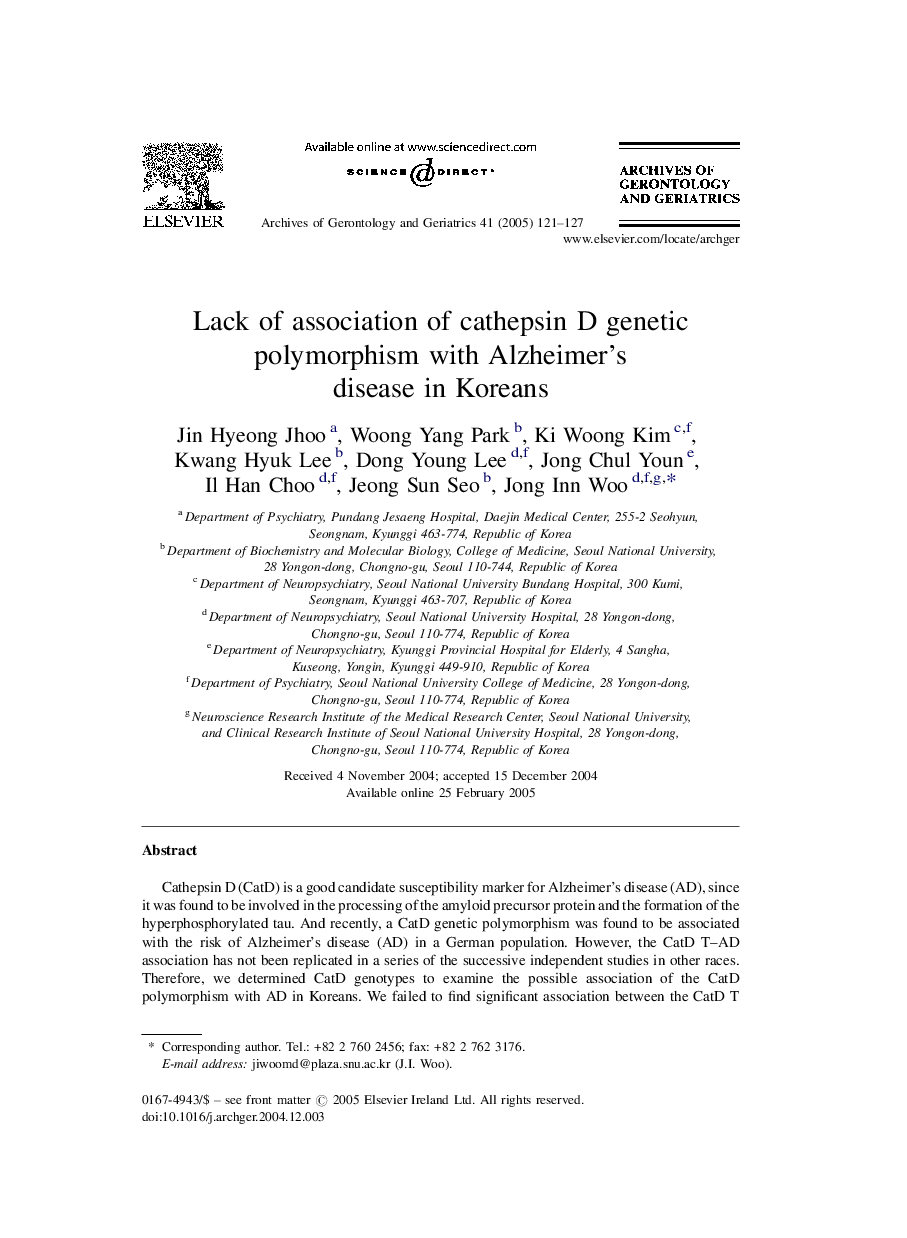| Article ID | Journal | Published Year | Pages | File Type |
|---|---|---|---|---|
| 9878892 | Archives of Gerontology and Geriatrics | 2005 | 7 Pages |
Abstract
Cathepsin D (CatD) is a good candidate susceptibility marker for Alzheimer's disease (AD), since it was found to be involved in the processing of the amyloid precursor protein and the formation of the hyperphosphorylated tau. And recently, a CatD genetic polymorphism was found to be associated with the risk of Alzheimer's disease (AD) in a German population. However, the CatD T-AD association has not been replicated in a series of the successive independent studies in other races. Therefore, we determined CatD genotypes to examine the possible association of the CatD polymorphism with AD in Koreans. We failed to find significant association between the CatD T allele and AD. In addition, the CatD T-AD association was not significant regardless of the age at onset or the occurrence of the apolipoprotein É4 allele. However, we cannot exclude the possible contribution of the CatD in the development of AD, since the power of the present study was not high enough because of low allelic frequency of the CatD T in Koreans and small sample size. In conclusion, the association between the CatD genetic polymorphism and AD was not found in Koreans, although it waits for further replication in an extended sample.
Related Topics
Life Sciences
Biochemistry, Genetics and Molecular Biology
Ageing
Authors
Jin Hyeong Jhoo, Woong Yang Park, Ki Woong Kim, Kwang Hyuk Lee, Dong Young Lee, Jong Chul Youn, Il Han Choo, Jeong Sun Seo, Jong Inn Woo,
